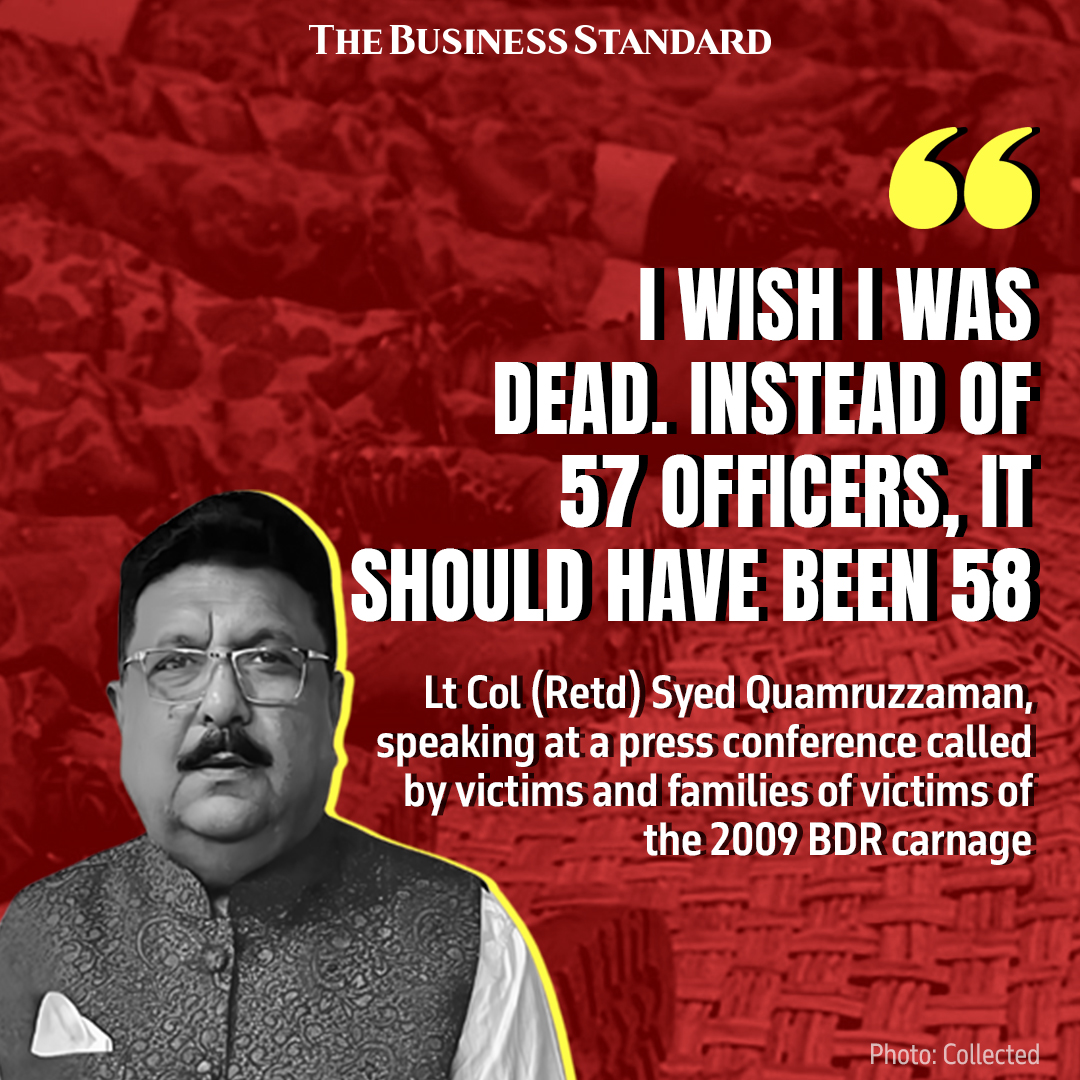The Tragic Pilkhana Massacre: A Dark Chapter in Bangladesh’s History
The Pilkhana massacre is considered one of the most tragic, shocking, and unprecedented events in Bangladesh's national history. Such an atrocity is rarely seen, even in contemporary world history. This planned massacre occurred on February 25-26, 2009, at the headquarters of the then Bangladesh Rifles (BDR) in Pilkhana, Dhaka, under the guise of a so-called BDR mutiny. It led to the brutal killing of 74 people, including 57 senior army officers.
This massacre took place during the rule of the Awami League government, with Sheikh Hasina as the Prime Minister. At the time, questions were raised about the behaviour and actions of the Prime Minister and several ministers and leaders concerning this incident. However, no satisfactory answers have been provided, even after over 15 years. Investigations and trials regarding the "BDR mutiny" have occurred, yet they have left significant doubts and dissatisfaction.
The families of the slain army officers do not accept the investigation or the subsequent trials. Observers share their sentiment, and despite calls from the victims' families for an impartial investigation and fair trial, the Hasina government, which held power for nearly 16 years, showed no urgency to address these demands.
However, with the fall of Sheikh Hasina's despotic rule on August 5, following a mass revolution led by students and citizens, an opportunity has now arisen to conduct an impartial investigation into the Pilkhana massacre. Sheikh Hasina fled to India, and the Awami League regime was ousted. Now, it is time to hold those responsible for the previous investigation and trial accountable.
Families of Victims Demand Justice
On August 8, a press conference was held at the Retired Armed Forces Officers' Club (RAOWA) in Mohakhali by the children and relatives of the army officers killed in the Pilkhana massacre. They demanded a transparent investigation and justice for the atrocity. Major General Shakil Ahmed’s son, Rakin Ahmed Bhuiyan, boldly stated during the conference that Sheikh Hasina, her daughter Saima Wazed Putul, Sheikh Fazle Noor Taposh, and Sheikh Fazlul Karim Selim were directly involved in the Pilkhana massacre.
Rakin also highlighted that after the massacre, many patriotic army officers lost their jobs or were imprisoned for seeking justice. Hundreds of officers' careers were destroyed at army gatherings. The victims' families and Rakin demanded the formation of a new investigation commission and urged the release of innocent, patriotic BDR soldiers who remain imprisoned.
The press conference presented a list of seven demands, which are relevant and justified.
A Monumental Loss
The country’s military history had never seen such a significant loss of officers, not even in conventional wars. In the infamous two-day BDR mutiny, the nation lost 57 army officers, in addition to 17 others. These officers were not only patriots but also highly skilled professionals.
Observers believe that the Pilkhana massacre dealt a severe blow to the capability of Bangladesh's armed forces, weakening them in a way that still has lasting effects today. A well-organized, well-trained military is essential for the sovereignty and security of a nation. Its weakness poses a direct threat to the country's independence and autonomy.
Many believe that, after the Pilkhana massacre, Bangladesh's sovereignty has come under significant threat from India. Border forces like the BGB, once known for their assertiveness, now adopt a submissive role. The frequent killings of Bangladeshis by the Indian Border Security Force (BSF) and the BGB's excessive enthusiasm in hosting ceremonial events like Rakhi Bandhan instead of standing up to such violence illustrate this shift.
Source
Indian Involvement and the Call for Accountability
At the press conference, Rakin Ahmed Bhuiyan hinted at India's involvement in the Pilkhana massacre, a sentiment shared by many since the incident occurred. He questioned how 57 army officers could be killed with the Prime Minister allegedly conspiring with a foreign state like India.
This belief has persisted for the past 16 years, and many see the massacre as a joint effort between the then-Badish government and India. Since then, Indian influence has become deeply entrenched in every institution and sector of Bangladesh. For 16 years, the people of Bangladesh witnessed an oppressive regime dominated by India, leading to the country's isolation on the international stage.
India's continued attempts to rehabilitate Sheikh Hasina and maintain its influence in Bangladesh are evident. However, with Sheikh Hasina now in exile in Delhi, her power to manipulate events in Bangladesh appears to be diminishing. Despite India’s continued conspiracies, the revolution by students and citizens has liberated Bangladesh for a second time.
As the demand for an impartial investigation into the Pilkhana massacre grows, it is crucial to take action in the national interest. A transparent investigation will reveal who was responsible, who orchestrated the event, and who collaborated with foreign powers to weaken Bangladesh's military and sovereignty.
While the damage done to the nation and its military by the Pilkhana massacre may never be fully repaired, a fair investigation and trial would offer some solace to the grieving families. As a nation, we must strengthen and modernise our armed forces to ensure that the sovereignty and independence of Bangladesh are never again put at risk.

Thank you, friend!


I'm @steem.history, who is steem witness.
Thank you for witnessvoting for me.
please click it!
(Go to https://steemit.com/~witnesses and type fbslo at the bottom of the page)
The weight is reduced because of the lack of Voting Power. If you vote for me as a witness, you can get my little vote.
Upvoted! Thank you for supporting witness @jswit.